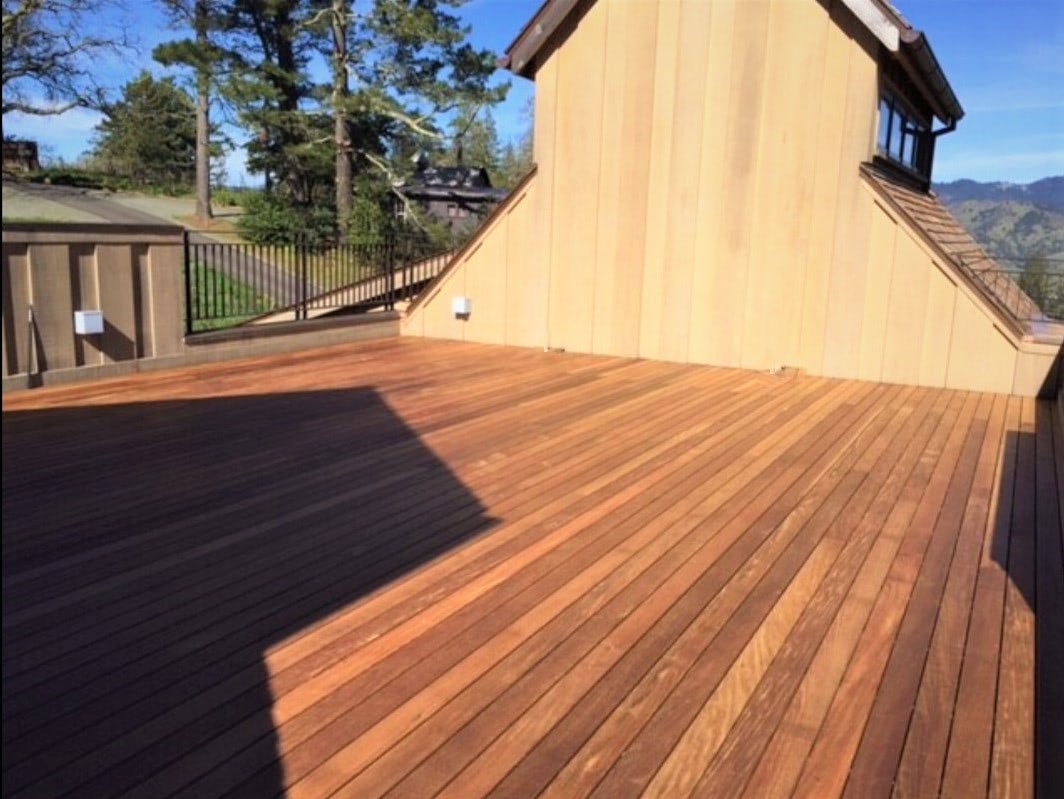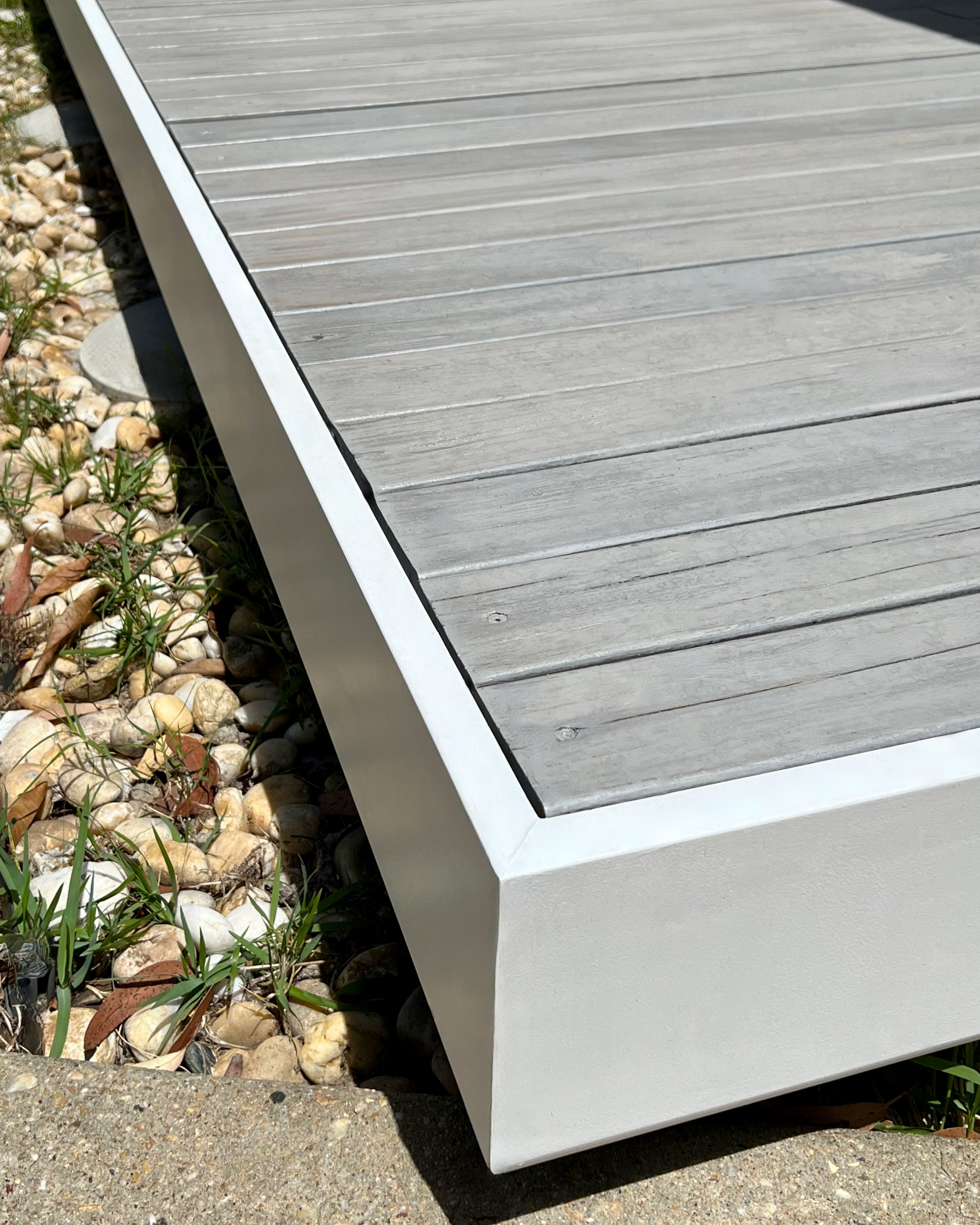Just how to Pick the Right Materials for Your Deck Installation Task
Choosing the ideal materials for your deck installation task can seem difficult. There are countless aspects to consider, from toughness and maintenance to appearances and environmental effect. The choice between conventional wood and composite materials, each with its very own set of benefits and downsides, can be specifically difficult. The key is to stabilize your budget, design preferences, and lifestyle requires to create a deck that will improve your exterior room for years to find.
Understanding the Different Types of Deck Products
When starting a deck installation job, the selection of materials ends up being an essential decision. Numerous options are offered, each with distinct characteristics and visual charm. Traditional timber, for circumstances, supplies an ageless, all-natural appearance and is generally much more affordable. It can warp over time and needs regular upkeep. Composite materials, on the various other hand, are a mix of timber and plastic, providing resilience and resistance to weather aspects. They demand less maintenance compared to timber however are typically extra pricey. One more choice is vinyl, which is essentially maintenance-free and immune to insects and rot, albeit less natural-looking. By comprehending these distinctions, property owners can make a much more enlightened choice on the most appropriate deck material for their certain needs.
Examining the Toughness and Upkeep Requirements of Deck Materials
Evaluating the longevity and upkeep demands of deck materials is a critical step in deck installment. Sturdiness involves the material's capability to hold up against rough weather conditions, wear and tear, and its durability.
Comprehending maintenance demands is equally vital. Some materials require regular sealing or tarnishing to maintain their look and resist moisture damages, while others, like composite decking, demand much less upkeep. By assessing these aspects, one can select the most appropriate outdoor decking product, making sure a balance in between longevity, upkeep needs, and aesthetic charm.
Price Analysis: Comparing Timber and Compound Decking
Although expense might initially appear like a secondary concern, it is a considerable variable when contrasting timber and composite outdoor decking. Wood, normally a less costly choice, has a reduced ahead of time price. Over time, maintenance expenditures can gather, potentially making wood much more costly in the long run. These maintenance costs may include staining, securing, or replacing harmed boards. On the various other hand, composite decking, while more expensive originally, requires much less maintenance, potentially lowering long-term prices. Yet, it's vital to keep in mind that composite outdoor decking isn't invulnerable to put on and tear, and replacement prices can be high. Therefore, prospective deck proprietors should consider their budget plan and readiness to preserve their decks when deciding between wood and composite decking.
Appearances and Layout Flexibility of Decking Products
Natural wood outdoor decking provides a classic, ageless look, while composite materials use a large variety of colors and structures to fit diverse preferences and designs. Compound products, while much less versatile in design, are still versatile sufficient for many deck layouts. These factors, for that reason, are important components in the option of decking material.
Ecological Impact of Decking Products
When selecting decking products, one must think about not just appearances and longevity, however additionally the environmental effect. It is necessary to examine the sustainability of products and explore recycled decking choices. Recognizing the potential influence on neighborhood ecological communities will certainly ensure a much more environmentally responsible choice.
Evaluating Material Sustainability
In the world of deck building, evaluating material sustainability is a crucial action. This involves assessing the ecological impact of each possible product, taking into consideration elements such as the energy required for its production, its carbon impact, and its end-of-life disposal or reusing alternatives. Timber is a sustainable resource, however unsustainable logging methods can lead to deforestation. Composite outdoor decking products often integrate timber and plastic, minimizing the demand for brand-new wood however boosting reliance on fossil fuels. Light weight aluminum and various other steels may be much more resilient and recyclable, but their extraction and handling can be energy-intensive. Thus, the option of decking materials should stabilize capability, looks, expense, and sustainability to ensure a liable and lasting installation.
Recycled Decking Alternatives

Composite decking is especially prominent because of its longevity and ease of maintenance. It's resistant to rot, pests, and fading, making it a durable choice. Recycled plastic decking, on see here now the various other hand, is extremely durable and calls for very little maintenance. While these materials might carry a higher first cost, their durability and minimized ecological influence make them a wise financial investment for the eco-conscious house owner.

Influence On Local Communities
While the benefits of making use of recycled materials for outdoor decking can not be overstated, it's equally crucial to consider the wider ecological implications of these selections. The removal, processing, and transport of products can profoundly affect neighborhood communities. Logging for timber decking adds to environment loss and environment adjustment. Also the manufacturing of composite materials can launch damaging exhausts. Conversely, using recycled or sustainably sourced materials can assist alleviate these results. Moreover, taking into consideration the lifespan of materials can decrease ecological impact; longer-lasting options require less frequent replacement, therefore conserving sources. Appropriate disposal of old decking is essential to decreasing garbage dump waste. next page Basically, an eco-conscious deck job demands cautious material selection, sustainable sourcing, and accountable disposal.
Making Your Last Decision: Tips for Picking the very best Deck Materials
As the article changes right into the subtopic of "Making Your Last Choice: Tips for Selecting the Finest Deck Products", it is vital to comprehend the variety of deck products offered. Striking an equilibrium between sturdiness and aesthetic appeal is important in this option procedure. The complying with conversation will guide viewers in making an educated selection based on these vital factors to consider.
Recognizing Various Deck Materials
The job of selecting the ideal products for your deck setup can appear intimidating due to the huge variety of choices offered. Plastic or PVC decks are even extra long lasting and require much less maintenance than composite products, however they can look less all-natural. Light weight aluminum decks are strong, light-weight, and resistant to rot, but they are additionally the most expensive choice.
Sturdiness vs. Aesthetic Appeals Balance
Balancing durability with looks can be a challenge when choosing deck products - deck installation austin. High-traffic areas might require resilient products like composite outdoor decking, which endures wear and tear however may lack the find natural elegance of timber. Homeowners need to strike an equilibrium, taking into consideration both the deck's practical needs and their aesthetic preferences.
Verdict
In verdict, picking the appropriate products for your deck installment task calls for mindful factor to consider of elements such as resilience, maintenance, cost, aesthetics, and environmental impact. Whether you select standard timber or composite materials, your choice needs to line up with your spending plan, design choices, and way of life. Inevitably, the very best decking product is one that enhances your outdoor area and offers satisfaction for many years to find.